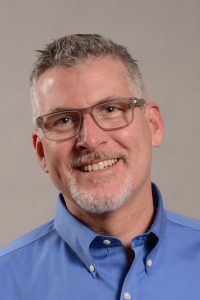The UConn Division of Occupational and Environmental Medicine has been notified that its U19 grant application to the National Institute of Occupational Safety and Health (NIOSH) has been approved to continue five-year funding for a Total Worker Health® Center of Excellence dedicated to research efforts promoting worker health.
The UConn program, which is a collaboration between UConn Health, UConn-Storrs, and the University of Massachusetts-Lowell (UML), has been funded since 2006. The U19 Center Grant represents more than $1,350,000 in renewed annual funding, through end of August 2026, which is complemented by additional funding through the American Rescue Plan. UConn Health, says William S. Shaw, Ph.D., associate professor and division chief for UConn’s Division of Occupational and Environmental Medicine, also is taking the lead on project work going forward, a role previously played by UMass -Lowell.

“The Center for the Promotion of Health in the New England Workplace (CPH-NEW) will include three separate research projects, significant outreach efforts with employers, safety professionals, and other stakeholders, and an administrative core,” explains Shaw. “The interdisciplinary team for this Center provides a unique opportunity to explore the complexity of factors that influence employee health, safety, and wellbeing, with a continuing goal to develop and test participatory methods within organizations to promote worker health and safety using innovative methods and policies.”
NIOSH has funded 10 Centers of Excellence for Total Worker Health (“TWH”). Four new Centers of Excellence in California, Maryland, North Carolina, and Utah will join the six existing centers in Connecticut, Colorado, Illinois, Iowa, Massachusetts, and Oregon.
NIOSH defines Total Worker Health as policies, programs, and practices that integrate protection from work-related safety and health hazards with promotion of injury and illness prevention efforts to advance worker well-being. The Centers are hubs for TWH-related research and practice that build the scientific evidence base necessary to develop new solutions for complex occupational safety and health problems.
According to Shaw, the new research projects will focus on three key research areas:
- The health and well-being of school teachers, studying work/life balance, engagement and burnout (Principal Investigator: Jennifer Cavallari, associate professor, UConn Health);
- The health and safety of health care personnel, with a focus on sustainability and union involvement in implementation processes (Principal Investigator: Alicia Kurowski, UML); and
- Integrating employee wellness into employer crisis-preparation and planning efforts (Principal Investigator: Cora Roelofs, UML).
The co-director of the Center will be Laura Punnett, professor, UML, and the director of Outreach will be Suzanne Nobrega, UML.
“The past 18 months have introduced many new challenges for worker health, safety, and well-being, so this is a critical time for employers to find effective methods for promoting worker health,” Shaw reflects. “Our experience shows that worker-centered TWH approaches that involve workers in the design, implementation and evaluation of organizational interventions can have a greater impact, and are innovative and efficient ways to improve the safety, health and well-being of the U.S. workforce.”



